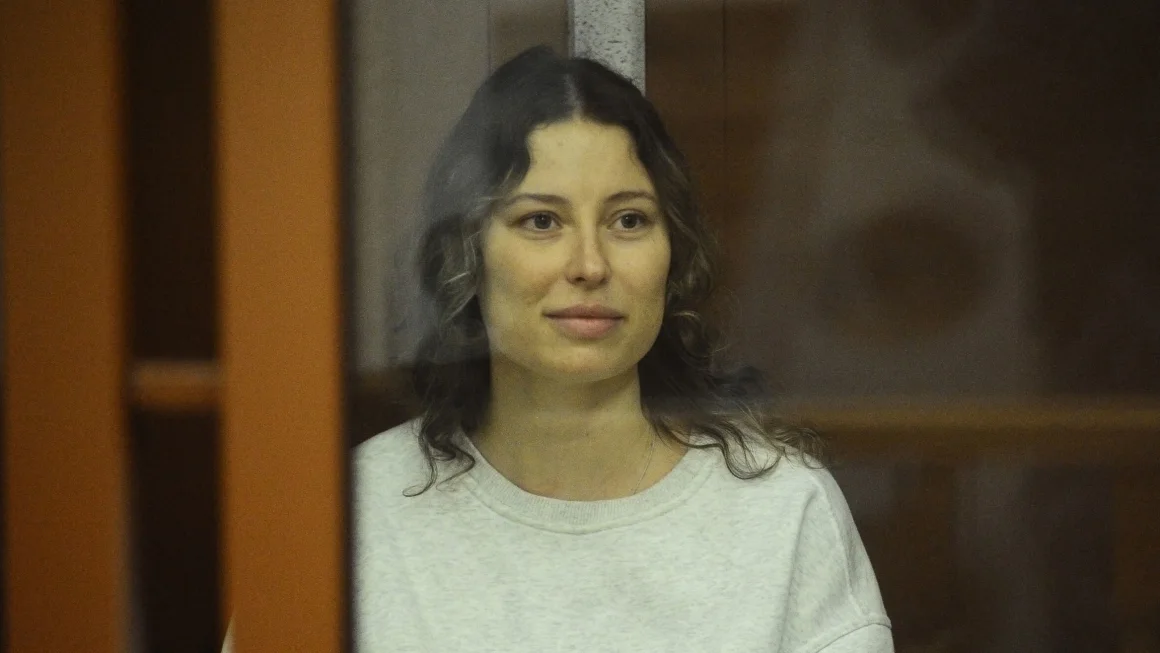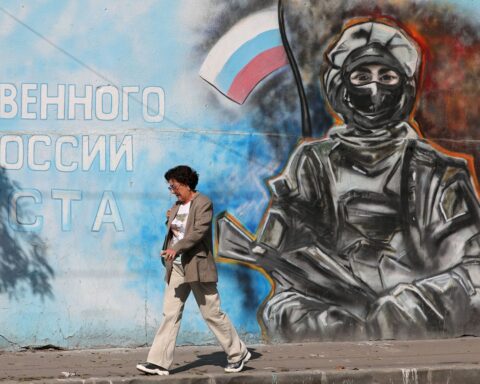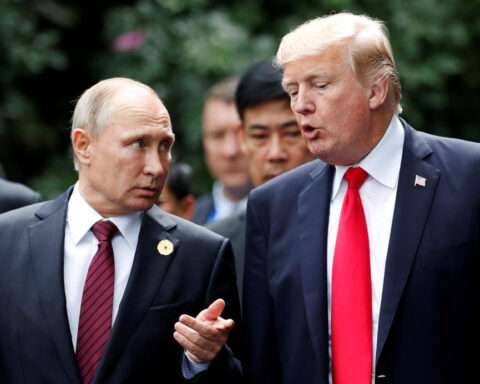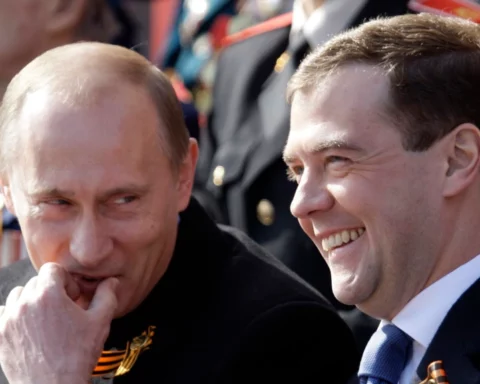In a striking turn of events, Ksenia Karelina, a Russian-American woman sentenced to 12 years in Russia for treason, is now on her way back to the United States, according to U.S. Secretary of State Marco Rubio. Karelina’s saga began with her arrest in Russia for a modest donation to a Ukrainian charity, an act deemed treasonous by Russian authorities.
Her subsequent conviction and imprisonment sparked international attention, highlighting tensions between the U.S. and Russia. After more than a year of detention, her release—secured through diplomatic efforts reportedly led by President Donald Trump—marks a significant moment in U.S.-Russia relations and a personal victory for Karelina and her supporters.
Karelina’s story unfolded against a backdrop of geopolitical strife, with her arrest occurring in early 2024 and her release confirmed on April 10, 2025. Born in Russia, she moved to the United States in 2012, eventually becoming a U.S. citizen in 2021 while maintaining dual citizenship.
A Los Angeles resident and amateur ballerina, Karelina had built a life in America, working at a Beverly Hills spa. However, a trip to visit her family in Yekaterinburg, Russia, turned into a nightmare when she was detained by Russia’s Federal Security Service (FSB). What followed was a legal ordeal that captivated media outlets worldwide and raised questions about justice, citizenship, and international diplomacy.
The Donation That Sparked a Firestorm
Ksenia Karelina’s troubles began with a seemingly innocuous act: a $51.80 donation to Razom for Ukraine, a New York-based charity providing humanitarian aid to Ukrainian children and elderly people affected by Russia’s invasion.
Made on February 24, 2022—the day Russia launched its full-scale military offensive—her contribution was discovered by the FSB after they confiscated her phone upon her arrival in Russia in January 2024.
Russian authorities accused her of “proactively collecting money” that was used to purchase tactical supplies, equipment, weapons, and ammunition for Ukraine’s armed forces, framing it as an act of treason against the Russian state.
The charge carried a potential sentence of up to 20 years, reflecting Russia’s harsh crackdown on dissent since the Ukraine conflict escalated. Karelina was initially detained on minor “petty hooliganism” charges, but the FSB quickly escalated the case.
Her trial, held behind closed doors in Yekaterinburg, concluded on August 15, 2024, with a 12-year sentence in a general regime penal colony. Karelina pleaded guilty, though her lawyer, Mikhail Mushailov, argued she did not intend for the funds to support anti-Russian actions, a nuance lost in the Russian judicial system’s swift judgment.
A Life Caught in the Crosshairs
Karelina’s personal story added layers of complexity to her case. At 33, she was described by friends and family as apolitical, someone who loved ballet and cherished her ties to both Russia and the U.S. Her former mother-in-law, Eleonora Srebroski, told Reuters that Karelina had reassured her boyfriend, Chris Van Heerden, that Russia was “safe” before her trip.
She intended to visit her 90-year-old grandmother, parents, and younger sister—a two-week journey meant to reconnect with her roots. Instead, it became a descent into a legal abyss.
Her boyfriend, a South African boxer, became one of her most vocal advocates. Speaking to the BBC, Van Heerden expressed frustration and heartbreak, noting that Karelina’s vibrant spirit was ill-suited to the confines of a prison cell.
“She needs to be out there, needs to be with her friends… she loves life,” he said. His pleas for her to be declared “wrongfully detained” by the U.S. State Department underscored the challenges of her dual citizenship, as Russia treated her solely as a Russian national, complicating American consular access.
Russian-American Woman Sentenced to 12 Years in Russia for Treason: The Verdict
The sentencing of Ksenia Karelina to 12 years in Russia for treason sent shockwaves through the international community. White House national security spokesman John Kirby called it “vindictive cruelty,” emphasizing the absurdity of labeling a $50 donation as treason.
“There’s no real system of justice coming out of Moscow,” he told reporters, a sentiment echoed by human rights groups and U.S. officials. The verdict came just weeks after a major U.S.-Russia prisoner swap that freed Wall Street Journal reporter Evan Gershkovich and others, raising hopes—initially dashed—that Karelina might be included.
Her case drew comparisons to other Americans detained in Russia, such as Gershkovich and former Marine Paul Whelan, whose releases were part of high-stakes negotiations. However, Karelina’s exclusion from that August 2024 exchange fueled outrage among her supporters.
Van Heerden told CBS News he felt betrayed by assurances that a swap would come later, lamenting, “Ksenia should be home, and I’m angry.” The sentencing highlighted Russia’s strategy of detaining U.S. citizens—particularly dual nationals—as potential bargaining chips amid strained relations with the West.
Diplomatic Maneuvers and a Breakthrough
Karelina’s release on April 10, 2025, marked a diplomatic triumph attributed to President Trump’s administration. Secretary of State Marco Rubio announced the news on X, stating, “American Ksenia Karelina is on a plane back home to the United States.
She was wrongfully detained by Russia for over a year and President Trump secured her release.” While details of the exchange remained murky, The Wall Street Journal reported that the U.S. traded Artur Petrov, a Russian accused of smuggling, sanctions violations, and money laundering, in a deal brokered in Abu Dhabi.
The CIA confirmed the prisoner swap, underscoring its significance in ongoing U.S.-Russia negotiations. Rubio emphasized that Trump would “continue to work for the release of ALL Americans” still held in Russia, such as teacher Marc Fogel, detained since 2021.
Karelina’s freedom came after relentless advocacy from her family, supporters, and U.S. officials who pressed for her inclusion in future exchanges. Her lawyer confirmed to The Washington Post that she had been freed as part of this agreement, ending months of uncertainty.
The Broader Implications
Karelina’s case is a microcosm of the deteriorating U.S.-Russia relationship, exacerbated by the Ukraine war and Russia’s increasing use of “hostage diplomacy.”
The U.S. has accused Moscow of arresting Americans on baseless charges to leverage prisoner swaps, a tactic seen in the releases of Gershkovich, Whelan, and Radio Free Europe journalist Alsu Kurmasheva.
Karelina’s dual citizenship added a wrinkle, as Russia’s refusal to recognize her U.S. status limited consular support—a pattern noted by State Department spokesman Matthew Miller in earlier comments to the AP.
Her story also spotlighted the risks for dual nationals traveling to Russia. The U.S. State Department has long warned against such trips, citing the danger of arbitrary detention.
Karelina’s ordeal, sparked by a small charitable act, underscored the unpredictability of Russia’s legal system and its intolerance for perceived disloyalty, especially since the 2022 invasion of Ukraine. For many, her 12-year sentence was a chilling reminder of Moscow’s willingness to punish even minor dissent with severe consequences.
A Homecoming and Unanswered Questions
As Ksenia Karelina boards a plane to the U.S., her journey home closes a harrowing chapter. Supporters, including those behind the FreeKsenia.com campaign, celebrated her release as a testament to perseverance and diplomatic pressure. Yet questions linger: What conditions did she endure in detention? How will she reintegrate after over a year of captivity? And what does her case mean for other Americans still imprisoned in Russia?
Her return is a personal victory, but it also reignites debate about the efficacy of U.S. policy toward Russia. Critics argue that swaps incentivize further detentions, while proponents see them as necessary to protect citizens caught in geopolitical crossfire.
For Karelina, the focus now shifts to healing and reclaiming the life she left behind in Los Angeles—a life of ballet, friends, and freedom.
Focus Keywords:
- Ksenia Karelina
- Russian-American woman
- sentenced to 12 years
- Russia treason
- Marco Rubio
- prisoner exchange
- U.S.-Russia relations
- Ukraine donation
- wrongful detention
- diplomatic efforts






